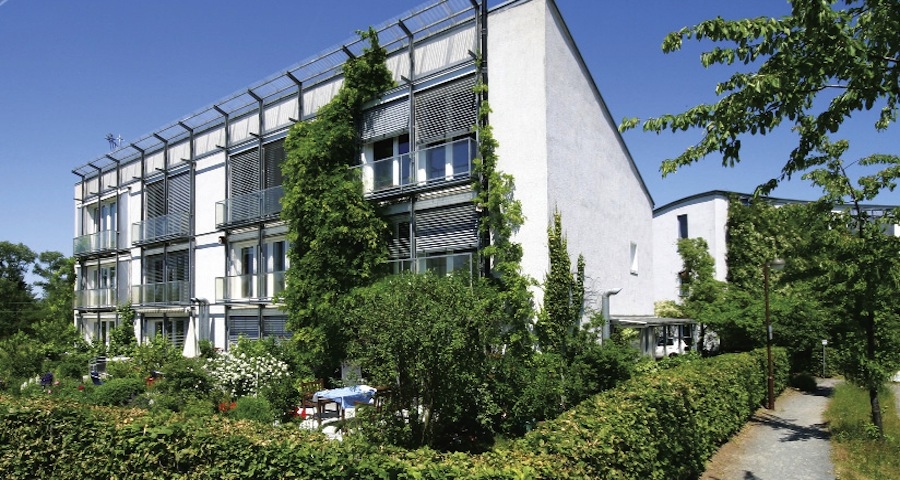
- Renewable Energy
- Posted
Passive house vs passivhaus: the reaction
My blog post last week on 'passive house vs passivhaus' generated a fair bit of debate, so I thought it'd be nice to take a look at some of the reaction it provoked. The vast majority of those who responded disagreed with my stance, and this magazine's stance, expressing preference for the German 'passivhaus'.
Immediately after my post, our editor Jeff Colley posted in the comments:
In my view passive house will struggle to become properly mainstream if it's seen as a foreign concept.
For instance I'm sure many people involved in passive house share the hope that it could someday become integrated into building regulations. I can see that happening with a term like passive house, but not with Passivhaus. In the UK, I can't see a Tory or Labour-led government making Passivhaus the minimum standard. Both parties covet the C2 vote - the "white van man" - too much, in my view.
And he later added:
A term like Passivhaus certainly implies quality, but it also suggests that it's a particular brand - or in other words, a particular product. I think that's dangerous, as it risks people coming to the conclusion that a "Passivhaus" is a building that's trucked in from Germany and craned up. And of course that's not necessarily the case.
Meanwhile an unnamed commentator posted a passionate defence of passivhaus in the comments. Here are just a a few of his points:
The German word "haus" means building, whereas the English term "house" means house. The use of the German spelling is therefore reflects the diversity of buildings to which the standard can be applied.
The written word [passivhaus] is clear and unambiguous i.e. you are not refering to the passive (solar) house of the 1970's/80's.
Arguably the term "Passivhaus" (as the written word) does not suffer the same confusion with interpretation as "passive house" (of the kind noted in the above blog post.)
By having stepped away from a clearly anchored term of reference, if you are not careful "Passive House principles" could prevail as a result of market pressures - "Passive House principles" is a term that I detest as it is used and abused by many informed individuals to refer something other than the quality assurance standard i.e. "low u-values, good airtightness, etc" (refer to the excellent article by Nick Grant in the last issue of Passive House +)
By cattering to those in the industry that already know about Passivhaus are you missing out upon expanding the audience (new clients, new construction industry proffessionals etc.) by watering down Passivhaus to Passive House their is a risk that the marketplace becomes confused. (The Passivhaus Trust uses the strap line "The UK Passive House Organisation" in this way promoting Passivhaus as the common term of reference but also accommodating the English term of reference also.
Some thought-provoking comments. However I don't have the same dislike of terms like 'passive house principles'. There's a danger that if we make passive house a certified-or-nothing standard, lots of great buildings won't get the recognition they deserve. I have no problem with a term like "passive house principles' as long as what it means is quantifiable — U-values, airtightness, thermal bridging, passive solar gain etc. I recognise there's a danger that using a term like 'passive house principles' could dilute the standard, but as long there is clarity about what those principles are, that doesn't need to happen.
Regarding the poster's last point, I think that using a clear, English language term is essential for expanding the audience.
The post generated a lot of discussion on Twitter, and here are a selection of the tweets:
@ElrondBurrell: agree with @50Pa comment about double edged sword, but still prefer #passivhaus
@bruteforceblog: Passivhaus, I've laid out reasoning before... In some respects passivhaus is a brand. Albeit, open sourced
@bruteforceblog: changing to passive house, or even worse, passive building waters down that brand (Volkswagen the people's car?)
@bruteforceblog: finally, issues with 'passive building' & passive solar are very well known. If going w/ legitimate cert (eg PHI) -> passivhaus
@Sharpeneer: I was once asked in a Berlin restaurant "what's the English for 'bon appetit'". Our language can cope with new words from abroad.
@Sharpeneer: so I would agree with all those who've commented so far saying 'stick with #passivhaus'. Clear meaning, no doubts or ambiguities.
@PassiveHouseBB: Agreed. I'm for #Passivhaus. Keeps concept recognizable in any language. Suppose I should change my twitter handle!
@net5arch: of course PH is a brand just as BREEAM is a brand and ZED is a brand. Is this bad?
@bruteforceblog: no, it is beneficial but brand gets diluted when inconsistent marketing materials...
Most of the commenters were UK-based — it would be interesting to hear from Irish posters, as one of the main drivers of the standard here has been the Passive House Academy.
Much of the argument against the use of 'passive house' over 'passivhaus' focused on the idea that the use of the English term would add ambiguity and dilute the standard. I can see the point here, but I think it can be overcome — for example by clearly referring to the 'passive house standard' rather than just a 'passive building', and stating whether a building is certified or not.
I think it's really worth noting that on the English-langauge version of their website, the Darmstadt based Passive House Institute use the Englsh spelling, as does the International Passive House Association.
Ultimately though, we shouldn't get too bogged down in this kind of debate. There's always a danger that idealistic, principled groups will splinter and crack over the tiniest of differences — look at the political left for example. The most important work, after all, is in pushing the standard forward. Passive house has experienced phenomenal growth so far, and both terms have existed happily side-by-side.
Related items
-
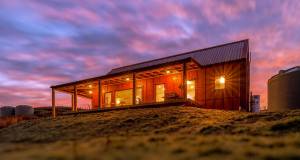 Big picture - New Zealand rural passive home
Big picture - New Zealand rural passive home -
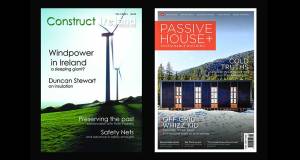 Podcast: what we've learned from 20 years in green building mags
Podcast: what we've learned from 20 years in green building mags -
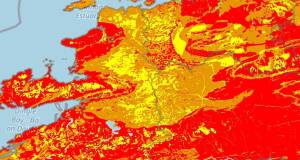 45,000 more Irish homes face radon risk, new maps reveal
45,000 more Irish homes face radon risk, new maps reveal -
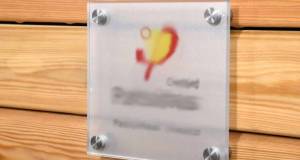 Passive house 30 years on: qualified success or brilliant failure?
Passive house 30 years on: qualified success or brilliant failure? -
 Above the curve - Limerick passive house showcases precision timber engineering
Above the curve - Limerick passive house showcases precision timber engineering -
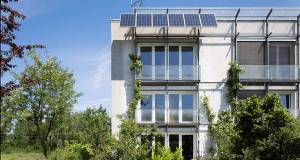 International passive house conference kicks off
International passive house conference kicks off

